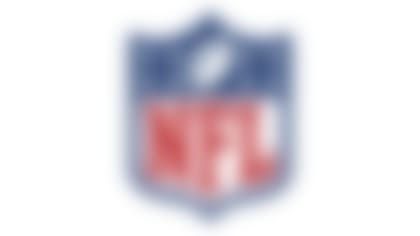The arbitration hearing between the NFL, Dallas Cowboys and Washington Redskins on the salary-cap penalties levied against the teams will be heard May 10 in front of league system arbitrator Stephen Burbank.
Gaffney insists he's on the block
The Redskins were aggressive in signing wide receivers during free agency. Jabar Gaffney sees the writing on the wall. **More ...**
Motions must be filed before the hearing, and while that process can take time, it's expected to happen as scheduled. The site of the hearing is up to Burbank, who is expected to hold it in Philadelphia, near or at the University of Pennsylvania, where he works as a law professor.
ProFootballTalk.com was first to report that the hearing was expected in May.
The league penalized the Redskins and Cowboys in March for using the uncapped 2010 year to create what was characterized as an unfair competitive advantage going forward, dumping large base salary numbers into 2010 on contracts for wide receiver Miles Austin in Dallas' case, and cornerback DeAngelo Hall and defensive tackle Albert Haynesworth in Washington's case. The teams' perspective is that there were no rules against doing that on the books, though other teams were upset about the moves.
A number of teams were adversely affected by the actions of the Cowboys and Redskins and were active in supporting the league pursuing the punishment, reflected by the 29-2 vote of owners (Washington and Dallas voted against it, and the Tampa Bay Buccaneers abstained) taken at the March league meeting to move forward with the penalties.
Among those hit were the San Diego Chargers, Miami Dolphins and Baltimore Ravens.
Austin's contract was instrumental in pushing the franchise receiver price tag from $9.5 million in 2010 to $11.3 million in 2011. San Diego franchised Vincent Jackson at the latter number in 2011. The leverage Jackson gained from having an $11.4 million tender made him difficult to sign to a long-term deal, and the resulting 2012 franchise figure -- by rule, 120 percent of the previous number, which came out to $13.7 million -- made it even harder for the team to tag him again.
So San Diego, which likely would have tagged Jackson again had the number been more affordable, let Jackson walk. He signed a five-year, $55.6 million contract with the Bucs this offseason.
Similar to Austin's deal, Haynesworth's contract with the Redskins was central to the defensive tackle number soaring from $7 million to $12.5 million. Baltimore subsequently tagged Haloti Ngata at that figure in 2011. And while the Ravens wound up getting Ngata signed to a five-year, $61 million contract, having that extra $12.5 million on the cap from July until September cost them the ability to be more aggressive in free agency, according to team sources.
A similar dynamic existed, from a budget standpoint, in Miami, where Paul Soliai played 2012 under the $12.5 million defensive tackle tag figure.
The franchise tag number also soared at Hall's position (cornerback), jumping from $9.6 million to $14 million. No player was franchised at the corner position in 2011.
The top 2011 free agent at that position, Nnamdi Asomugha, would've had a high number regardless, because of his already high financial numbers, and the Oakland Raiders contractually couldn't tag him anyway. But Johnathan Joseph is an example of a player who might have been franchised if the number was lower than $14 million. The Cincinnati Bengals franchised kicker Mike Nugent instead, and Joseph bolted to the Houston Texans.
Follow Albert Breer on Twitter @AlbertBreer











